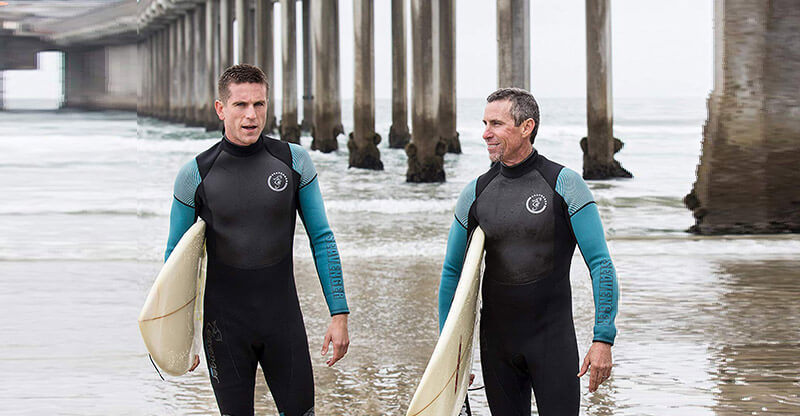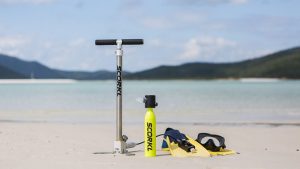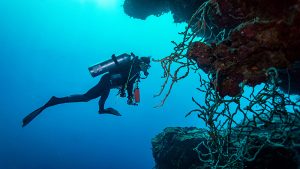Do wetsuits keep you dry? Well, that is what you are trying to figure out if you are reading this.
However, from the “wet” and “suit” combo, you can guess that this is a kind of a water suit that keeps you wet.
So, quick answer to the question is no, a wetsuit does not keep your dry.
And so you wonder, what the heck then does the wetsuit do? What good is it anyway?
You will be surprised. If you have taken your scuba diving course successfully, the next thing you should do is start buying your diving gear. A wetsuit is going to be one of the most important gear for water sports.
But even with the word wet in the name, it is hard to believe the number of people that actually believe that a wetsuit can keep them dry!
Thankfully, all that you have to do to burst that myth and settle it once and for all is go to a dive shop and ask to try one of the wetsuits.
Buy why even do that when you can buy your best wetsuit on Amazon.com and try it at home?
You know, wetsuits are not only used for scuba diving. They are also used for snorkeling, surfing, kayaking, for swimming and for so many more water adventures.
Let’s just say that if you do not fancy hitting the water on your stand up paddle board barebacked, then a wetsuit is what you need.
After learning how to scuba dive, the next step is buying your water sports gear. Such include but is not limited to the following:
- Scuba diving camera
- Scuba diving knife
- Diving watch
- Aqua shoes
- And many others
Do wetsuits keep you dry- A wetsuit keeps you wet
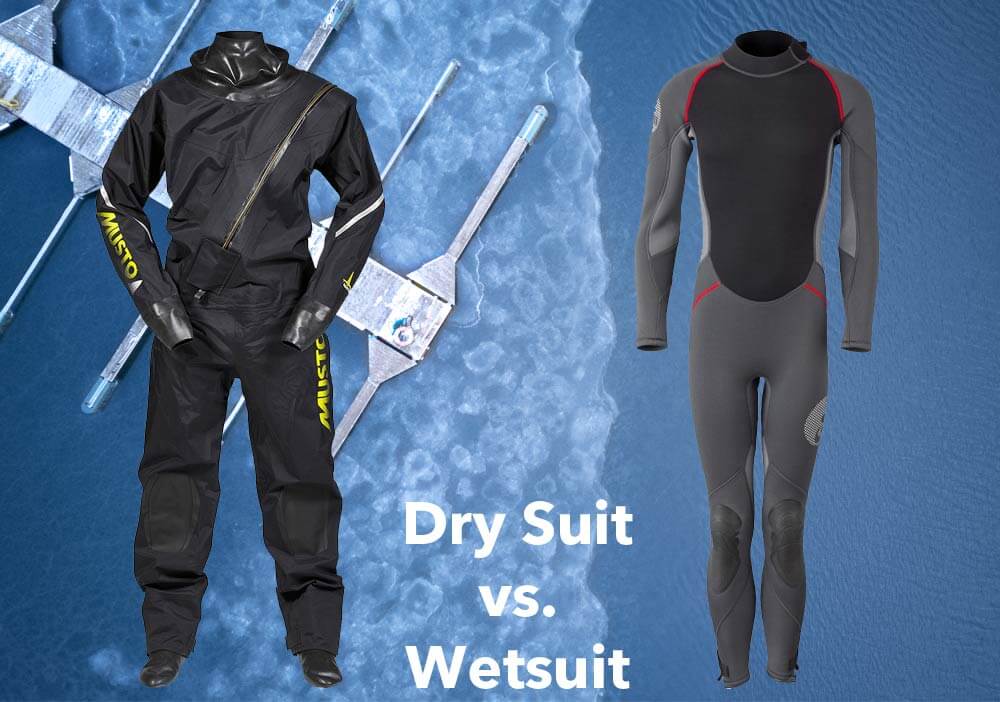
To the question of do wetsuits keep you dry, the answer is a resounding no.
That is right, a wetsuit keeps you wet! When you step into the water, the wetsuits absorbs water. However, do not worry that it will get too heavy for you. In fact, if you buy a snug-fitting wetsuit, you will never feel any extra weight on you. It will be like a second skin on you.
What makes the wetsuit so spectacular is that it is made with so many air minute air bubbles. These contribute to the light weight as well as the buoyancy of the wetsuit.
Thus, when you are packing your weights for diving, the difference that the wetsuit brings in is negligible.
When you wear a wetsuit, you will be as wet as a fish in water. So, if you have been thinking that perhaps you could wear a wetsuit to stay dry when diving, please banish that thought. It won’t happen!
To stay dry when kayaking or diving, you can always go for a drysuit. This one is designed to keep you as dry as possible.
Because a wetsuit gets you wet, it is only logical for you to assume that you cannot use it for diving in very cold water. For diving in icy water, you need a dry suit. It keeps the water completely out. That is why a drysuit is very effective at preventing hypothermia.
However, please note that wearing a drysuit has its disadvantages. While wetsuits are made to fit snugly like a second skin, it is different for the drysuits. These ones are baggy and loose fitting. Thus, they do hinder your movement in the water a bit.
Thus, when you wear a drysuit for diving, you will finish the air in your scuba tank faster. This also means that you will have to cut your dive short sooner, as compared to when you use your wetsuit for diving.
What then does a wetsuit do?
Now that you know that a wetsuit for snorkeling is not going to keep you dry, you cannot help wondering what it is that it does then.
Now, even if you will be as wet as a rained on cat in wetsuit, well, it still serves a very important purpose.
You see, a wetsuit is special! It first gets you wet, and then it gets you warm. But it does not only get you warm, but it keeps you warm for the entire time that you will be in the water.
Do wetsuits keep you dry? We have said it does not. How does it keep your warm?
It is very simple really. When you step into the water, the wetsuit absorbs water and lets it pass through. Because its absorbing capacity is low, it can only absorb a low amount of water.
Now, the absorbed water gets on your skin. But your skin does not absorb water. However, your skin is hot, or warm.
So, there you are. You have now formed three layers. The first layer is your skin. The second layer is the water on your skin and the third layer is your wetsuit. See the illustration below to understand better:
Immediately the water touches the body, well, the body starts to transfer heat to the water. This is what happens when a hot object is placed in a cold environment. It transfers the heat to the cold surroundings, in an attempt to equalize the temperature differences.
In this case, the thin layer of water trapped between the body and the wetsuit retains the heat. Note that this layer of water is now contained in a vacuum and it cannot escape.
On the one hand, your wetsuit prevents cold water from penetrating the thin layer of water. So, this thin layer of water acts as a buffer zone between your body and the wetsuit. Since the wetsuit does not let in any water, it means there is no movement of water. Thus, the body retains its warmth while the ocean retains its coldness.
What you need to stay warm in a wetsuit
You mean apart from wear my wetsuit? Well, you do not need to do much, except a few things:
Choose the right wetsuit thickness. Please note that wetsuits are mostly made to be used in warm water diving. Such wetsuits are usually between 2 and 4mm thick.
You can read about wetsuit thickness guide in this article. I wrote it sometime back, to help people know what suit is suitable for what temperature.
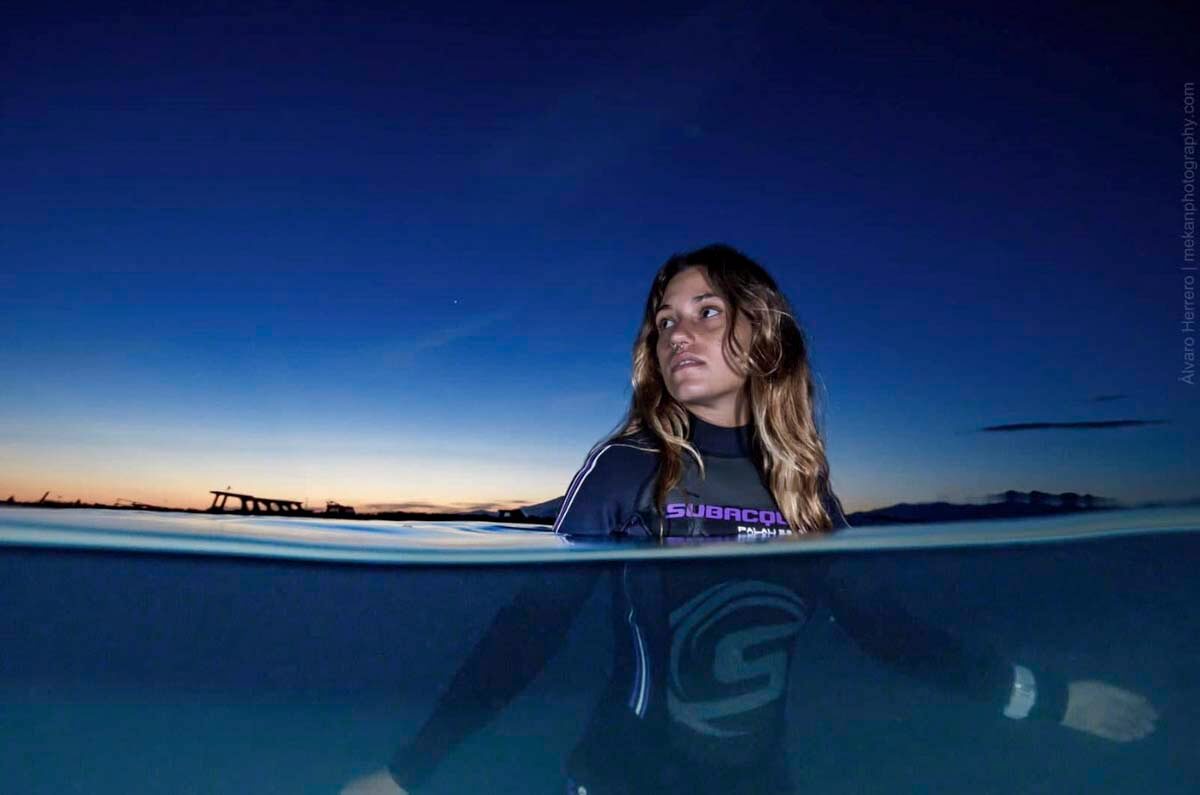
However, some are thick enough to be used in cold water. A wetsuit that is between 5 and 7mm thick is good for moderately cold water diving.
Apart from choosing the right thickness, you also need to choose a snug-fitting wetsuit. This is very important.
A loose fitting wetsuit will hinder your movement in the water. (scooter for diving). You will have to use more energy to move. This is why all wetsuits are made to fit snugly like a second skin.
If you buy your scuba suit on Amazon.com, you will find that they are made for various sizes. Just read the product description keenly before buying.
Baggy wetsuits are not going to keep you warm! The reason for this is that they will let in water and so between your skin and the wetsuit, there is going to be too much water.
A loose wetsuit will also keep letting in more water. When there is water movement in and out of the suit, you keep losing more heat and that could lead to hypothermia.
Another thing that you need to know about wearing loose wetsuit is that your skin could develop rashes. If it is loose, it will keep moving, and rubbing against the skin, causing discomfort and rashes.
To stay warm in your wetsuit, just buy the right size and then make sure it fits you snugly. While the answer to do wetsuits keep you dry is no, you can see they keep you warm and wet, which is a good recipe for fun.
Do wetsuits keep you dry? Look for taped seams
You may have a nice wetsuit to keep you warm when you are water paddling. However, if the seams are not done right, the wetsuit will not keep you as warm as you had hoped.
Thus, look for taped seams. Such do not allow water in and thus the wetsuit keeps you warm. Stitched seams are likely to let in water, especially with the passage of time.
Besides, taped seams are also better because you can repair/re-tape the seams in future. Also, please make sure that you do not use a very old wetsuit. If it is worn out, just buy a new one.
Old neoprene is uncomfortable on your skin, can let in water and it will causes rashes on your skin. Only use a high quality wetsuit for diving. You can buy a good quality wetsuit on Amazon.com.
One more thing … when packing your wetsuit among other scuba diving gear in the dive gear bag, take care to ensure that it is not pierced. Neoprene rubber maybe tough, but it will not resist piercing from sharp objects.
When you are still wearing your dive suit, you want to relax on the white sand beaches. Thankfully, beach pebbles or rocks do not pierce a neoprene suit easily. All the same, be careful where you sit.
There, you have seen the answers to the question of do wetsuits keep you dry. It does not. However, getting into the water means getting your skin wet. That is where all the fun is! If you do not want to get wet, get the right gear for snorkeling or diving.

